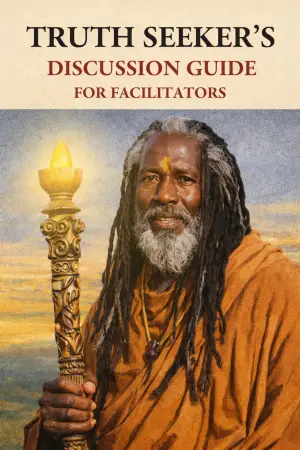When it comes to literature that captures the essence of human experiences, memoirs and biographies reign supreme. However, many people confuse the two terms, leading to misunderstandings about their purposes and structures. The main difference lies in perspective: a memoir is a personal account of one’s own life, while a biography details the life of someone else. Let’s explore these two genres in depth.
Table of Contents
What is a Memoir?
A memoir is a snapshot of personal experiences, feelings, and insights. It focuses on specific themes, events, or periods in the author’s life, allowing them to share their unique perspective. Unlike an autobiography, which covers an entire life story, memoirs hone in on particular moments or topics.
Examples of Memoirs
One notable memoir is “The Glass Castle” by Jeannette Walls. Here, Walls recounts her unconventional upbringing and the lessons she learned from her tumultuous family life. It offers readers valuable insights into resilience and forgiveness while painting a vivid picture of her experiences.
Consider “Educated” by Tara Westover. In this memoir, Westover recounts life in a harsh, isolated family, then rises through relentless study to achieve a doctorate at Cambridge University. In both cases, the authors do not merely list facts but offer emotional and reflective narratives that connect deeply with readers.
Characteristics of Memoirs
- Subjective Experience: Memoirs convey the author’s truths and emotions, often emphasizing how experiences shaped their identity.
- Thematic Focus: These writings often revolve around specific themes such as love, loss, recovery, or identity, providing depth to the narrative.
- Intimate Voice: Memoirs employ a conversational and relatable tone, engaging readers as if they are part of the journey. This personal connection is a hallmark of the genre.
- Limited Scope: Unlike autobiographies, memoirs reflect on select experiences, which results in a concentrated story filled with details.
What is a Biography?
A biography is an account of someone else’s life, written by a different author. It aims to provide a comprehensive and factual representation of that individual’s life, achievements, and impact. Biographies typically encapsulate the entire lifespan of the subject, detailing major life events along the way.
Examples of Biographies
A prime example of a biography is “Alexander Hamilton” by Ron Chernow, which details the life, contributions, and complexities of one of America’s founding fathers. This work sheds light on Hamilton’s ambitions and personal conflicts, exploring his connections and offering an insight into his historical impact.
Another illustrative biography is “Steve Jobs” by Walter Isaacson, which gives an inside look at the life of the Apple co-founder, highlighting his professional journey, innovations, and the interpersonal dynamics that shaped his character.
Characteristics of Biographies
- Objective Perspective: A biography presents the subject’s story without bias, using details gathered from studies, personal accounts, and credible records.
- Comprehensive Scope: These works aim to capture every aspect of a life, highlighting both accomplishments and the challenges that arise.
- Chronological Structure: Most biographies present life events in the order they happened, making it easier to see progress and transitions. Readers can track shifting circumstances and learn how each moment influenced the next.
- Multiple Sources: Authors of biographies often draw upon an assortment of materials—letters, interviews, and news articles—to create a well-rounded narrative.
Key Differences Between Memoir and Biography
The distinction between memoirs and biographies is not just in authorship but in intention and delivery:
Perspective
The author of a memoir writes from their viewpoint, reflecting on personal experiences. Meanwhile, a biography presents an external perspective, aiming to depict an accurate representation of someone else’s life.
Subject Matter
Memoirs focus on specific experiences or themes in the author’s life. In contrast, biographies provide a broad portrayal of an individual’s entire life story.
Voice and Tone
Memoirs often have a more conversational tone. Meanwhile, biographies may adopt a more formal narrative style as they present facts and analysis about the subject.
Creative License vs. Factual Rigor
Memoirists can employ storytelling techniques and artistic liberties to enhance emotional resonance. On the other hand, biographers aim to adhere closely to factual accuracy.
When to Write a Memoir or a Biography
Choosing to write a memoir or biography depends on the work’s purpose, topic, and target readers.
Writing a Memoir: Tips and Considerations
- Identify Your Focus: Select an exact idea or situation you wish to explore further. Imagine a pivotal incident changed your direction, then examine its effect on your views.
- Engage the Reader Emotionally: Use vivid storytelling to draw readers in and offer them an emotional connection to your experiences.
- Be Authentic: Authenticity is key. Don’t shy away from showcasing your vulnerabilities and introspections.
- Balance Reflection and Action: While memoirs require storytelling, they also need reflection. Make sure to discuss what you learned through your experiences.
Writing a Biography: Tips and Considerations
- Research Thoroughly: Delve into various materials related to your subject. Visit libraries, archives, and online resources to obtain a complete understanding of their life.
- Organize Chronologically: A chronological structure helps readers follow the arc of the subject’s life and understand how events are interconnected.
- Include Context: It’s essential to provide historical or cultural context to help readers understand the subject’s actions and decisions.
- Aim for Objectivity: While it’s tempting to let personal biases seep in, maintaining an objective tone helps preserve the integrity of the biography.
Challenges in Writing Memoirs and Biographies
Both memoirs and biographies present unique challenges that authors must navigate effectively.
Common Challenges in Memoirs
- Self-Doubt: Memoirists often struggle with the fear of judgment, questioning whether their stories are interesting enough or if they’ll expose too much.
- Selective Memory: Reconstructing events presents challenges because memories shift or emotions color recollections.
- Finding the Right Tone: Navigating sensitive topics often requires careful attention to truth, wit, and openness, which rarely aligns with ease.
Common Challenges in Biographies
- Fact-Checking: Ensuring accuracy is crucial, but it can be labor-intensive and sometimes just plain tricky, especially with historical figures.
- Ethical Considerations: Writing about someone else’s life can raise ethical dilemmas around privacy, particularly if the subject is still alive.
- Complexity of Relationships: Biographies often require a nuanced understanding of the interpersonal dynamics affecting the subject’s life, which can complicate the narrative.
Memoir vs. Biography: Audience Reception
Understanding how different audiences engage with memoirs and biographies can help writers tailor their work to better connect with readers.
Engagement with Memoirs
Those who prefer memoirs choose writings that reveal genuine feelings and details from daily routines. They appreciate honesty, vulnerability, and engaging storytelling.
Engagement with Biographies
Biography readers typically appreciate well-researched, factual accounts that provide a deeper understanding of significant figures. They prefer a balanced viewpoint that explains historical background and highlights accomplishments.
Why It’s Helpful to Know the Difference
Being aware of the differences between memoirs and biographies helps writers choose their direction and brings deeper enjoyment to readers. By understanding how each narrative style operates, both writers and audiences can better appreciate the artistry and purpose of these forms. Each serves a distinct role in literature, contributing uniquely to our understanding of history, human experience, and personal growth.
Additional Information
Memoirs and biographies appear alike on the surface, yet they hide several unexpected differences that most readers overlook.
- Perspective Matters: A memoir is written from the first-person perspective, allowing the author to delve deep into personal experiences and emotions. In contrast, a biography is crafted from the third-person viewpoint, focusing on the subject’s life through the lens of an outsider.
- Scope of Narrative: Memoirs typically cover a specific theme or period of the author’s life, while biographies aim to provide a comprehensive overview of the subject’s entire life, often including extensive research and factual recounting of events.
- Author’s Presence: Memoirs put the writer directly into the story. Readers experience their thoughts and feelings firsthand. Biographies, however, may not include the author’s voice beyond the narrative, making it more about the subject than the writer.
- Creative License: Memoirs open doors to creative storytelling, allowing recollections to seem sharper or more emotionally charged. Biographies, on the other hand, are typically held to stricter standards of factual accuracy and objectivity.
- Emotional Focus: Memoirs often follow change and self-discovery prompted by significant events, yet biographies center on what the person has done and how those actions shaped the broader community.
- Intended Audience: Memoirs may appeal more to readers seeking personal storytelling and introspection. Biographies tend to attract those interested in detailed histories and factual accounts of prominent individuals.
- Publication Timing: Memoirs can often be published while the subject is still alive, providing a unique lens on current events and experiences. Biographies emerge later, shaped by a thorough investigation into the full span of someone’s existence and influence.
- Inclusion of Research: Biographies usually require extensive research, utilizing letters, interviews, and other primary sources. Memoirs offer a story shaped by private thoughts and remembered events, creating a distinctive interpretation.
- Longevity of Interest: Memoirs may capture fleeting moments in time, while biographies often aim for timelessness, chronicling the life and impact of the person long after they have passed.
- Legal Implications: Memoirs can open the door to potential legal issues, such as defamation, when discussing other people. Biographies are often held to stricter legal standards, as they typically focus on facts rather than personal viewpoints.
Frequently Asked Questions (FAQs) Related to Memoir vs Biography
Q. What is the main difference between a memoir and a biography?
A. A memoir focuses on a specific aspect or period of the author’s life, offering personal reflections. Meanwhile, a biography provides a comprehensive account of someone else’s life, covering their entire journey from birth to the present.
Q. Can a memoir include factual events and experiences?
A. Yes, a memoir can include factual events. However, it emphasizes the author’s personal feelings and reflections regarding those experiences rather than a strict chronological account.
Q. Is a biography always written by someone other than the subject?
A. Typically, yes. A biography tells the story of someone’s experiences, analyzed and recorded by a writer. On the other hand, autobiographies hand control to the person describing their past.
Q. Are memoirs fictionalized or can they be entirely factual?
A. Memoirs are generally based on real life. However, authors may choose to craft events for narrative flow or emotional impact, as long as it’s in line with their truth.
Q. Which writing style is more subjective, memoir or biography?
A. Memoirs are more subjective as they reflect the author’s perspective and emotions. On the other hand, biographies strive to maintain an objective tone, sharing information and moments from the subject’s life.
Q. Can a memoir contain elements of research?
A. Yes, memoirs can incorporate research, especially if the author references historical events or other people’s perspectives relevant to their story.
Q. Are there any common themes that stand out in memoirs?
A. Many memoirs explore themes like identity, resilience, family dynamics, and personal growth, often driven by the author’s unique life experiences.
Q. Do readers usually expect a particular writing style in biographies?
A. Yes, readers often expect biographies to be more formal and structured, focusing on factual narrative. Meanwhile, memoirs tend to be more personal and expressive.
Q. Is there a length difference between memoirs and biographies?
A. Not necessarily, but biographies may be longer due to their comprehensive nature. On the other hand, memoirs can vary in length based on the specific focus of the author’s experiences.
Q. Can a memoir turn into a biography later on?
A. It’s possible! An author may write a memoir first and later decide to expand it into a biography as they explore more aspects of their life or others’ perspectives on their experiences.
Conclusion
Memoirs and biographies serve different purposes in the world of literature. Memoirs provide a personal glimpse into an individual’s experiences and emotions, inviting readers to connect with the author’s journey. In contrast, biographies approach a life from a distance, assembling achievements and placing their subject in historical perspective. Understanding these distinctions helps readers choose the right book for their mood and interests. Whether you prefer the intimate storytelling of a memoir or the comprehensive narrative of a biography, both forms enrich our understanding of the human experience. So, pick up a book that resonates with you, and dive into the world of lives well-lived!







